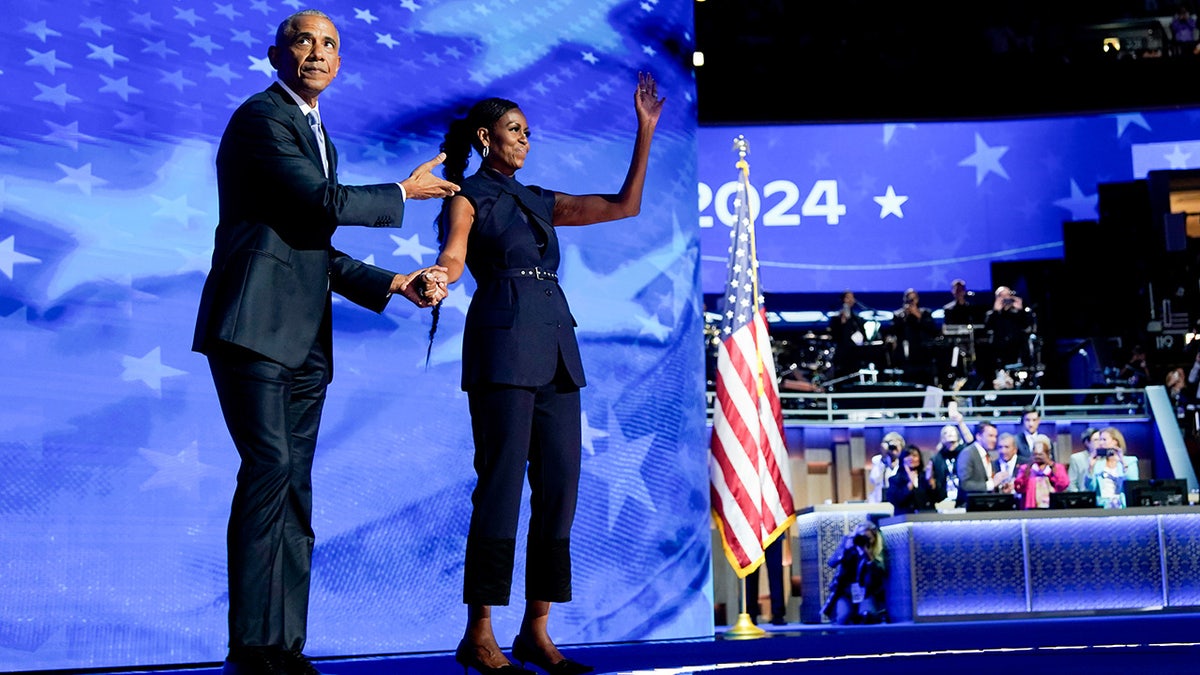Carney rates his French, Poilievre opposes Quebec secularism law: What emerged from Cinq chefs program | CBC News

French-speaking Canadians got a first taste of how the five main federal party leaders defend their platforms beyond U.S. tariff threats in the span of two hours Thursday night on Radio-Canada’s Cinq chefs, une élection program.
The show featured five live interviews with the five leaders. It kicked off with the Liberals’ Mark Carney, followed by Conservative Leader Pierre Poilievre, then the Bloc Québécois’s Yves-François Blanchet, NDP’s Jagmeet Singh and lastly Green Party Co-leader Jonathan Pedneault.
The leaders talked Canadian (and Quebec) sovereignty and how they would defend Canadian interests in the face of U.S. President Donald Trump — but also how they would fix the current housing crisis, make life more affordable, support workers and protect jobs. And they talked about Canada and Quebec’s place in a rapidly changing world.
Blanchet told hosts Céline Galipeau, Anne-Marie Dussault and Sébastien Bovet that it felt like the first day of the campaign to him because so much of the election’s first two weeks have been focused on Trump’s tariff threats, which were finally unveiled Wednesday.
Carney gives his French ‘six out of 10’
The evening was also an opportunity to put Carney’s French language skills to the test — which Blanchet had called into question when the Liberal leader turned down an invitation to a second French debate hosted by private Quebec television network TVA early in the campaign.
In his interview on ‘Cinq chefs, une élection,’ Liberal Leader Mark Carney said he’d give his spoken French skills a six out of 10. He said he’s ‘far from perfect,’ but loves the language and promised to improve to an eight or nine out of 10 by the end of a potential term.
On that note, one of the last questions Carney was asked was how he would rate his French during the interview and, if elected, what level he’d aim to attain at the end of a first mandate.
Carney gave himself six out of 10 on his spoken French and said he’d want to be at an eight or nine in four years.
“I’m from Alberta. I’m 60 years old. I can still learn,” Carney said, adding his comprehension is good and that he loves the language.
“I am far from perfect but I adore the language … I take part in meetings, I can negotiate in French. All of that,” he said.
Some of the tougher questions Carney had to answer involved Quebec, including why he wouldn’t commit to creating legislation to protect supply management of poultry, dairy and eggs — major sectors in the province — and what Quebec represents to him.
Carney said that since he’d launched his Liberal leadership bid in January, that he’d been unequivocal about his position that supply management should be off the table in renegotiations of the Canada-U.S.-Mexico Agreement (CUSMA).
Pressed on why he wouldn’t propose a bill to protect supply management, he said “it’s not necessary … the negotiation will start in a few weeks.”
The Liberal leader was given some rapid-fire questions about his positions on various topics, some of which he hadn’t yet spoken about in the campaign. Would Canada be willing to send troops to Ukraine? “It depends,” he said, noting he’s ready to join the France and United Kingdom-led “coalition of the willing.”
Carney was also asked what he would tell Israel Prime Minister Benjamin Netanyahu in the face of Israel’s continued bombardment and renewed ground operation in Gaza.
He answered that “territorial integrity” is key in the situations of Gaza, Ukraine and Canada (with regards to Trump’s 51st state threats).
“Second, we must make every effort to establish a ceasefire in Gaza and to resume humanitarian aid,” he said.
When asked about a possible recession, Carney was reluctant to say it was a certainty for Canada. But he acknowledged the blanket tariffs imposed by Trump on dozens of countries Wednesday “are likely to cause a global recession, that’s for sure. And that could cause a recession in the United States, in which case, here in Canada, it’s very difficult.”
Poilievre: Liberals weakened Canadian economy

Up next, Poilievre — joining virtually from Oshawa, Ont. — repeated his assertion that the Liberal Party had weakened the Canadian economy, making it more difficult for the country to stand up to Trump and linked Carney to former prime minister Justin Trudeau’s government, saying he has the “same policies, same ministers, same MPs.”
The Conservative leader said Trump wanted to keep the Liberals in power for those reasons. He acknowledged his position as Opposition leader has put him at a disadvantage on foreign affairs, but brushed it off and said that’s always the case for the Opposition.
He then listed a number of things he was willing to bring to the negotiating table with Trump, including expanding the Canadian military and improving border security, saying he could “take [them] away the moment Trump reneges on his promises.”
Poilievre was asked about his position on Bill 21, Quebec’s secularism law, which prohibits a number of public servants, including teachers and police officers, from wearing religious symbols.
The Conservative said that though he supports Quebec’s value of state secularism, he opposes the law itself.
“I’ll give you an example. There is an RCMP officer who protects my family who wears a turban. He’s ready to save my life. He’s ready to save my children’s lives by giving his. Am I going to say he shouldn’t have a job because we wears a turban? I don’t agree with that,” Poilievre said.
Singh later said he strongly agreed with Poilievre’s answer.
On the expansion of the military, Poilievre said he would partly fund that by cutting down on foreign aid, though he didn’t say by how much. He then repeated a statement he made early last year that the main organization providing aid in Gaza, the United Nations Relief and Works Agency for Palestine Refugees (UNRWA), is a “terrorist” organization.
Galipeau pushed back, saying any members of Hamas that had been found in the UN group had been ousted. But Poilievre doubled down, saying, “This has been known for decades.”
Blanchet says Liberals favour Ontario over Quebec

Blanchet, whose Bloc Québécois, along with the NDP, has steadily lost support in public opinion polls this year in favour of the Liberals, softened his position on Carney’s French Thursday, saying he would let Quebecers decide what they think of it.
But he reiterated an earlier statement that he knows Poilievre better than Carney, whom he accused of hiding his assets.
“We don’t know the guy or his plan,” Blanchet said.
He also accused the Liberals of prioritizing Ontario over other provinces, namely Quebec.
“In a Liberal caucus, the critical mass is in Ontario,” he said.
Singh says policy wins weren’t for gratitude

Singh, too, has seen major declines in support for his party in public opinion polls since the new Liberal leader entered the ring.
Dussault asked him if Canadians lacked gratitude for the programs the NDP pushed the Liberals to create, including dental care and pharmacare.
“I don’t do it for Canadians’ gratitude,” Singh said. “My mother taught me we’re all one and it’s for that reason that I went into politics.”
He said many of the social programs Canadians use to differentiate themselves from Americans were created by the NDP.
Asked whether those programs had contributed to Canada’s $62-billion deficit, Singh said his party had recommended places for the Liberals to cut on expenses, including in oil and gas subsidies and stopping the use of private consulting firms, but that they hadn’t followed through on them.
On Quebec’s Bill 21, Singh said he, like Poilievre, is opposed and would support constitutional challenges in court — but not on the province’s recently revamped French-language legislation, Bill 96.
“I support the importance of defending the French language,” he said.
Pedneault pitches national homebuilding program

Last but not least, Pedneault had one of his party’s few opportunities in the limelight so far.
In what was likely an introduction to many French-speaking Canadians, Pedneault pitched his party’s idea to create national “stocks” of Canadian resources, including lumber, aluminum and steel, that could then be used to build pre-fabricated housing.
He also said the Green Party would put an end to oil and gas subsidies and reorient jobs in the fossil fuel industry toward industries necessary for a green transition.
The Greens are also in favour of a cap on oil production.




